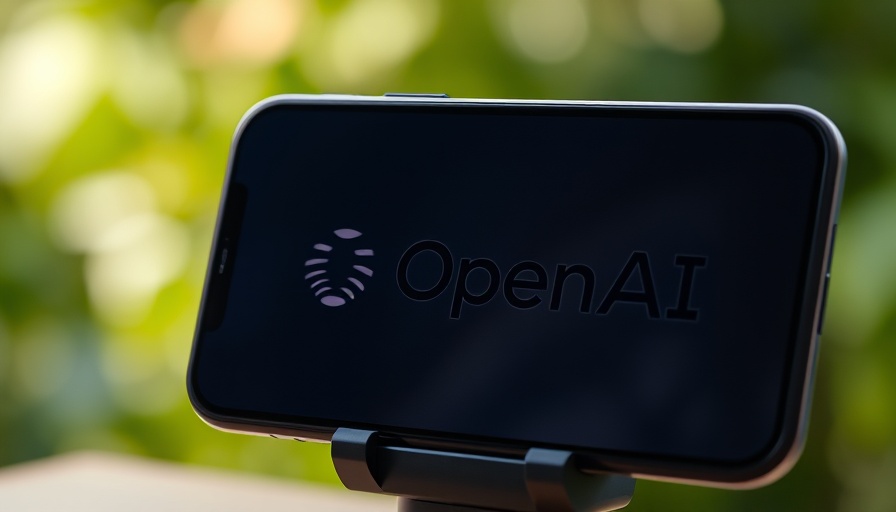
OpenAI Launches Personalized AI Agents for Businesses
OpenAI has taken significant strides in artificial intelligence by launching a new platform that enables businesses to create their own AI agents. This innovation allows companies to harness AI technologies for tasks such as customer service and financial analysis. With two million paying business users for its various ChatGPT products, OpenAI is shifting the landscape of business productivity through their newly released agent-building capabilities.
Exploring the Application of AI Agents
AI agents are designed to autonomously perform designated tasks on behalf of humans, providing companies the ability to streamline operations. The recent announcement coincides with fresh competition in the AI sector, showcasing how companies are vying for a foothold in the burgeoning market of digital agents. Notably, OpenAI’s release comes in the wake of rival Manus AI’s foray into general AI, capable of accomplishing tasks like data analysis, thus adding urgency to OpenAI's launch.
What Makes AI Agents Different?
Current AI technologies can handle mundane assignments such as ordering supplies or answering customer inquiries, but businesses are still hesitant to allow AI agents to undertake complex tasks like hiring or managing financial transactions. However, OpenAI’s reasoning models promise to enhance the competency of these agents, thereby building trust in their capabilities. As expressed by OpenAI COO Brad Lightcap, the tools developed ensure agents can engage with external data, utilizing web searches and compiling information to assist in decision-making.
What the Future Holds for AI Agents
Despite the thrilling potential, experts remain cautious about the immediate impact of AI agents in workplaces. The anticipated “year of agents” in 2025 has been projected by various industry leaders, including OpenAI, suggesting that the technology may achieve a maturity level suitable for high-stakes business decisions. For instance, their earlier AI agent, Operator, was able to successfully complete tasks such as preparing groceries or filing expense reports autonomously, signaling a path forward for more specialized applications.
Cost and Customization: A Double-Edged Sword
OpenAI adopts a usage-based pricing strategy for its agent platforms. Businesses will incur costs based on the number of queries and actions performed by their custom agents. This model fosters a flexible approach to AI integration but raises questions about scalability and long-term usage costs for companies attempting to optimize operational efficiency amid budget constraints.
Exciting New Possibilities in Automation
The emergence of AI agents like Operator not only defines new productivity standards but also implies a systemic shift in how businesses will operate. As AI agents increasingly automate routine tasks, professionals find themselves freed to concentrate on strategic initiatives, creativity, and innovation. However, marketing sectors might experience a transitional phase, impacting advertising dynamics as reliance on automated agents grows.
Addressing Challenges with AI Integration
The journey toward widespread AI adoption is not without its challenges. Businesses need to address concerns such as data security, the potential for bias in decision-making processes, and the evolving legal landscape surrounding the use of AI in workplaces. Training and ensuring developers possess requisite skills will be crucial in the successful deployment of custom AI agents.
Call to Action
As the era of AI agents approaches, businesses should consider how these technologies can be integrated into their operations to foster growth and efficiency. Leveraging AI to its full potential requires a mindset shift towards embracing innovation and adaptability—are you ready to take the leap?
 Add Row
Add Row  Add
Add 




 Add Row
Add Row  Add
Add 

Write A Comment